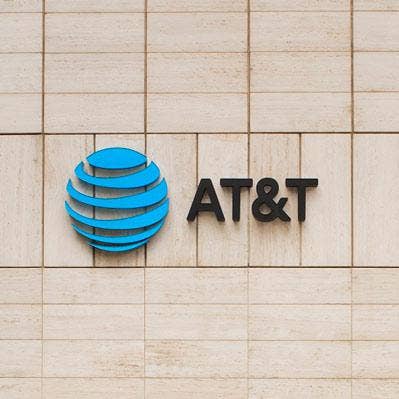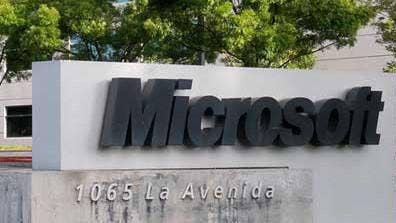8 Things To Know About AT&T's Partnerships With IBM, Microsoft
AT&T inks two new deals with IBM and Microsoft around cloud, 5G and IoT. Here are the facts you need to know about these new partnerships.

Cloud Everywhere
AT&T has had a busy month. The Dallas-based carrier revealed two newly forged alliances with two tech giants that also happen to be two of the largest cloud providers in the world. First, AT&T revealed it expanded its partnership with IBM to support each other in cloud and software-defined networking. The very next day, AT&T unveiled an alliance with Microsoft in which the two companies will work together on 5G while AT&T moves its workloads to Microsoft Azure.
The two partnerships show that AT&T is focused on its core networking portfolio and has plans to offload its non-networking assets to cloud leaders that can handle the workloads. The relationships also suggest that AT&T is willing to work together with others to harness next-gen technologies like 5G and use its network as a jumping-off point for brand-new services to help businesses better engage with their customers.
Here's what you need to know about AT&T's two new partnerships.

AT&T, IBM Expand Relationship
AT&T said this month that it's growing its relationship with its longtime teammate IBM. This time, the two companies are coming together and lending each other their expertise in cloud and SDN in a multi-year partnership.
As part of the deal, AT&T Business Solutions will migrate its internal software applications to the IBM cloud. IBM, for its part, will make AT&T Business its primary provider of SDN. Prior to the latest agreement, AT&T Business was IBM's strategic global networking provider.

AT&T, IBM In The Cloud
In addition to helping AT&T modernize its internal software applications in its Business Solutions unit, IBM will become the primary developer and cloud provider for AT&T Business' operational applications as part of the latest agreement. IBM will also help manage AT&T Communications’ IT infrastructure, on- and off-premises and across cloud environments, including private and public cloud platforms such as Microsoft Azure.
To better serve enterprise customers, AT&T Business will use IBM's recently acquired Red Hat’s open-source platform to manage its workloads and applications, the two companies said, adding that the expanded partnership will give AT&T Business better access to Red Hat Enterprise Linux and OpenShift platforms for increased workload interoperability across any vendor's cloud, on- or off-premises.

Together With SDN
With IBM's help on the cloud side, AT&T in turn will be helping IBM transform its networking portfolio with next-generation technologies such as 5G, edge compute and the Internet of Things.
The two companies said they plan to work together to develop an edge computing platform that will help enterprises harness speedy next-generation technology like 5G, and support internet-connected devices and sensors at the edge of the network. AT&T and IBM said they will be working toward helping businesses transform the user experience and optimize processes across industries such as retail, financial services, transportation and health care.

The AT&T-IBM Team
AT&T and Big Blue are no strangers to working with one another. The two companies have been expanding their partnership for the past several years in cloud, networking and IoT.
AT&T transitioned its managed application and managed hosting services unit to IBM Cloud in 2015, which gave IBM the ability to deliver AT&T's managed applications and managed hosting services, while AT&T brought its networking services including security, cloud networking and mobility. The two companies joined forces again in 2016 when IBM partnered with AT&T to support customers’ IoT environments by combining AT&T’s IoT network and the IBM Watson Data Platform.

AT&T Teams With Microsoft
At Microsoft Inspire 2019, the company's annual conference for developers, AT&T and Microsoft confirmed a multiyear partnership in which the companies will support each other in cloud and 5G.
Via the terms of their new arrangement, the AT&T Communications division will move its workloads to Microsoft Azure in keeping with the telecom's goal to move most of its non-network workloads to the public cloud by 2024. The two companies will also collaborate on new 5G products.
In addition to their technology alliance, AT&T and Microsoft said they plan to collaborate on "technology-enabled approaches" to addressing social causes, such as homelessness, accessibility and sustainability.

AT&T-Microsoft Deal: Reportedly Worth $2 Billion
The latest deal between AT&T and Microsoft is being valued at a whopping $2 billion, according to an initial report from CNBC, citing sources familiar with the deal. While a spokesperson for Microsoft said that it couldn’t confirm the financial estimates reported by CNBC, a source confirmed to CRN that the figure was accurate.

AT&T, Microsoft In The Cloud
By moving its non-network workloads to Microsoft Azure, AT&T Communications will be able to better focus on its core networking portfolio and capabilities for business customers and consumers, while also lowering costs, the two companies said.
Via the terms of the deal, most of AT&T's 268,000 employees will also now be moved to Office 365's cloud-based productivity and collaboration tools, the carrier said.

Microsoft, AT&T On 5G
Cloud is a big part of the latest deal forged between AT&T and Microsoft, but the partnership will also allow the two companies to design, test, and build edge computing capabilities. The two companies said they will bring together the global reach of Microsoft Azure with AT&T's domestic 5G capabilities.
AT&T said that with Microsoft, the two companies will bring new offerings in areas such as collaboration and conferencing, intelligent edge and networking, IoT, public safety and cybersecurity. The two companies already have created enterprise offerings for networking, IoT and blockchain and expect to unveil more services later this year.